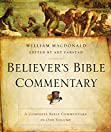PERSONAL TESTIMONY: A POWERFUL TOOL
The transformative power of personal testimonies in evangelism cannot be overstated. These narratives are not only a reflection of individual faith journeys but also serve as a potent tool for sharing the Gospel. In an increasingly secular world, the authenticity and relatability of personal stories can bridge gaps that traditional methods of evangelism might not.
The Biblical Foundation of Testimonies
The Bible itself is replete with personal testimonies. One of the most striking examples is that of Apostle Paul. His dramatic conversion from a persecutor of Christians to a devout follower of Christ is documented in Acts 9:1-19. This story has resonated through centuries, illustrating the power of God to transform lives.
Another compelling example is the account of the Samaritan woman at the well (John 4:1-42). After her encounter with Jesus, she becomes a spontaneous evangelist, sharing her experience with her community, leading many to believe in Jesus.
Theological Significance
Theologians of the past and of day emphasize the significance of testimonies. They see it as a practical application of 1 Peter 3:15, which urges believers to always be ready to give an explanation for their hope in Christ, but with gentleness and respect.
Cultural and Historical Context
Understanding the cultural and historical context of biblical testimonies adds depth to their modern application. For example, Paul’s background as a Pharisee and his Roman citizenship (Acts 22:25-29) provided him unique platforms for spreading the Gospel. Similarly, today’s believers can use their unique backgrounds and experiences to connect with different audiences.
Testimonies in Modern Evangelism
In contemporary settings, personal testimonies are a vital component of evangelistic outreach. Organizations like Campus Crusade for Christ (Cru) and the Navigators emphasize the use of personal stories in their evangelism training. Testimonies are seen as a way to make the Gospel accessible and relatable to people from diverse backgrounds.
The Power of Relatability
The effectiveness of personal testimonies lies in their relatability. When people hear about real-life struggles and victories, they are more likely to see the relevance of the Gospel in their own lives. This connection is especially potent in a culture that values authenticity and personal experiences
Impact on the Listener
Personal testimonies can soften hearts and open doors for deeper conversations about faith. They often bypass intellectual barriers and directly address the emotional and spiritual needs of individuals.
Crafting a Compelling Testimony
A powerful testimony typically includes three elements: life before Christ, the conversion experience, and life after coming to faith. It’s essential to be honest and vulnerable, yet also wise and discerning about what details to share.
Challenges and Considerations
While testimonies are powerful, they also come with challenges. There’s a risk of focusing too much on the past or glorifying one’s pre-Christian life. The emphasis should always be on God’s work in transforming the life.
Academic Perspectives
Scholars from institutions like Cornell University, Princeton, and Dallas Theological Seminary have studied the impact of personal testimonies in evangelism. Their research often highlights the psychological and sociological aspects, such as the role of empathy and social connection in effective evangelism.
Conclusion
Personal testimonies are a powerful tool in evangelism. They are biblically grounded, theologically significant, and culturally relevant. By sharing our stories, we participate in the great commission, inviting others to experience the transformative power of the Gospel.



